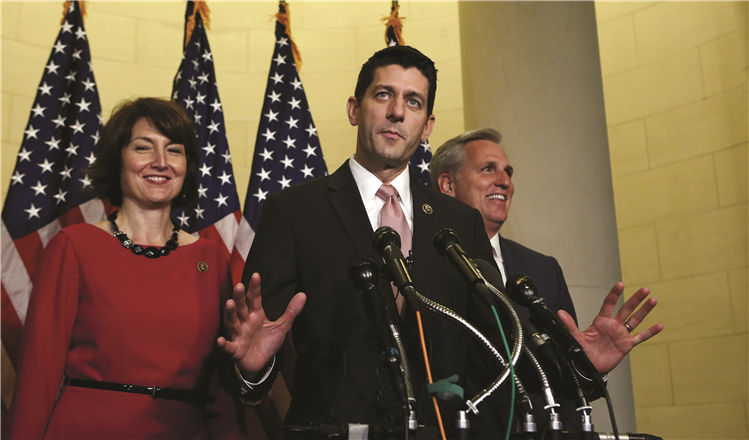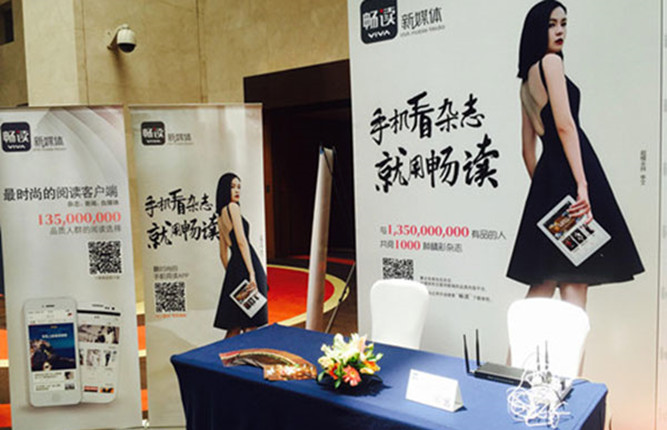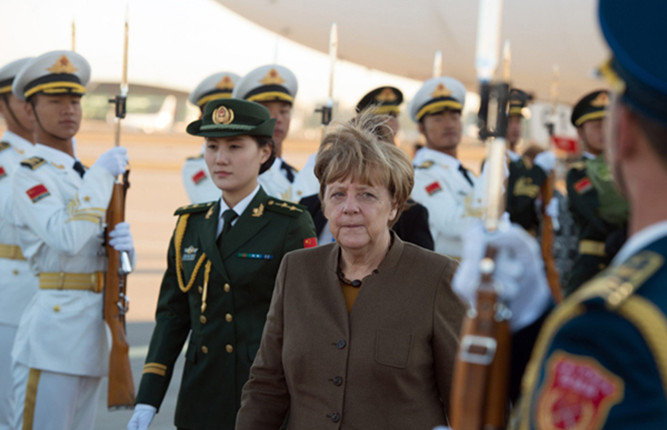Enter the dream zones
Updated: 2015-10-30 01:02
By Gao Yuan, Meng Jing and Wang Sujuan(China Watch)
|
|||||||||
 |
|
Li Min / China Daily |
This is a tale of three cities, each very different but with one thing in common: They are attracting tens of thousands of tech-savvy entrepreneurs with dreams of changing China’s economy.
Beijing in the north, Shanghai in the east, and Shenzhen in the south are the mainland’s three centers of innovation. These cities not only provide the right conditions for any startup — a dynamic economy, resources, and a large talent pool — but their unique advantages also neatly complement each offer.
To start with, Beijing has the cash.
“The capital is the best place to find funding in China,” said Huang Qinghua, who runs a company in Shenzhen making high-tech surveillance equipment for commercial and residential properties. “Investors are open to all kinds of projects.”
His company, Wanwulian, received initial funding in 2013 from 10 angel investors, including seven from Beijing.
In fact, Beijing investors help to create 120,000 startups every six months, according to data from Zhongguancun Science Park, an area in the capital often referred to as China’s Silicon Valley and home to search engine Baidu. The abundance of angel investors and venture capitalists has played a large part in the city’s success, and the demand for financial backing is only increasing.
AngelCrunch, a website that helps Chinese startups attract investors, said the number of companies looking for funding had jumped 178 percent in the first half of 2015 compared with the same period last year. The site raised more than 920 million yuan ($144 million) for technology projects from January to June.
New companies specializing in gadgets and mobile apps dominate the marketplace for investment.
“Beijing is a special place where the West meets the East,” said Zhao Yong, who returned from the United States two years ago to set up DeepGlint. His company is developing a 3-D visual recognition system, a device that could be applied in driverless cars or security systems. “It’s been a challenge,” he said, “but the business potential in China is bigger than anywhere else.”
Of course, financing is just one feature that makes Beijing attractive. The capital also has deep technology resources, while its many universities, including several elite institutions, produce 230,000 graduates a year.
The city has “managed to generate the right chemistry,” according to Guo Hong, director of the administrative committee of Zhongguancun Science Park. “When all the key factors are in place, Beijing is an effective ecosystem for innovation and entrepreneurship.”
Ren Bin can testify to that. He founded Yaogeili, a mobile app that allows people to order medicine and pharmaceutical products to be delivered to their door, one of the large number of startups involved in the online-to-offline sector. “The threshold to set up an O2O business is comparatively low because you don’t actually manufacture anything,” he said. “In Beijing, all you need is a team to design an app. It’s pretty easy. You can also find product managers, investors and marketing specialists here.”
While Beijing has the financial clout, Shenzhen in Guangdong province brings the manufacturing muscle. Over 35 years, the city has been transformed from a sleepy fishing village into a center for electronics manufacturing, the go-to metropolis for global tech giants looking to cut production costs. Today, the city is home to Chinese behemoths such as Huawei and ZTE, both of which specialize in technology infrastructure projects and consumer goods such as smartphones and tablets.
The Shenzhen miracle isn’t short of success stories, said Kitty Fok, head of market researchers IDC China. “The city has come a long way. It’s become a crucial hub for electronics globally, which is why Intel started to host its China technology event in Shenzhen two years ago.”
A glance at the numbers shows investment in research and development reached 30.5 billion yuan in the first half of this year. The figure surpassed most developed economies, including the U.S. and Japan, according to the Shenzhen Bureau of Statistics.
Naturally, this has fueled the entrepreneurial spirit. Pete Lau, for example, left an executive job with cellphone manufacturer Oppo in 2013 to start OnePlus in Shenzhen, with the aim of producing high-performance and affordable smartphones. Tapping the city’s manufacturing power, his phones are now rolling off assembly lines and being shipped to Europe and the U.S.
“This demand from local startups for mobile chips has already caught the attention of global component suppliers,” Fok added.
While Beijing and Shenzhen have a distinct edge, Shanghai, the country’s financial powerhouse, is the relative new kid on the block. It’s not awash with angel investors, nor is it big on manufacturing. Instead, the city government hopes to create a major innovation hub by becoming even more welcoming to foreign talent — roughly one-sixth of expats in China already live in the metropolis.
“We want to be the first port of call for top international talent and a hotbed of entrepreneurship by 2020,” said Sun Jiwei, head of the city’s Pudong district.
Sebastian Martin from the U.S. founded Cambio Coffee in the city two years ago. “I wanted to introduce high-quality coffee from South America to China and let the consumers here taste the freshness and richness of the coffee. Now I’m keen to develop the business focusing on online, retail and wholesale,” he said, adding that his website will offer suggestions on flavors as well as videos shot during sourcing trips for his beans.
The Shanghai government hopes more foreign entrepreneurs will be encouraged to follow Martin’s example, aided by liberalized visa requirements.
“The plan to allow foreign students in China to stay on and set up businesses is a positive step that will attract more young talent to contribute innovative ideas to industries here,” said Ken Jarrett, president of the American Chamber of Commerce Shanghai.

 Ryan nominated for speaker
Ryan nominated for speaker
 Top 10 news apps favored by smartphone users
Top 10 news apps favored by smartphone users
 Intimate Transgressions: More than just pain
Intimate Transgressions: More than just pain
 Want a butler at your home?
Want a butler at your home?
 Rescue operations in full swing as quake death toll hits 365
Rescue operations in full swing as quake death toll hits 365
 Merkel's visits to China aimed at forging 'special' ties
Merkel's visits to China aimed at forging 'special' ties
 Netherlands king enjoys local flavors of Yan'an
Netherlands king enjoys local flavors of Yan'an
 NBA MVP Curry scores 40 points, Warriors win opener
NBA MVP Curry scores 40 points, Warriors win opener
Most Viewed
Editor's Picks

|

|

|

|

|

|
Today's Top News
Tu first Chinese to win Nobel Prize in Medicine
Huntsman says Sino-US relationship needs common goals
Xi pledges $2 billion to help developing countries
Young people from US look forward to Xi's state visit: Survey
US to accept more refugees than planned
Li calls on State-owned firms to tap more global markets
Apple's iOS App Store suffers first major attack
Japan enacts new security laws to overturn postwar pacifism
US Weekly

|

|








